frontpageRed_Liz | Staff posted Mar 04, 2024 01:59 PM
Item 1 of 6
Item 1 of 6
frontpageRed_Liz | Staff posted Mar 04, 2024 01:59 PM
Prime Members: Anker 65W PIQ 3.0 & GaN 4-Port Slim Wall Charger w/ 1x USB-C & 3x USB-A
+ Free Shipping$30
$50
40% offAmazon
Get Deal at AmazonGood Deal
Bad Deal
Save
Share
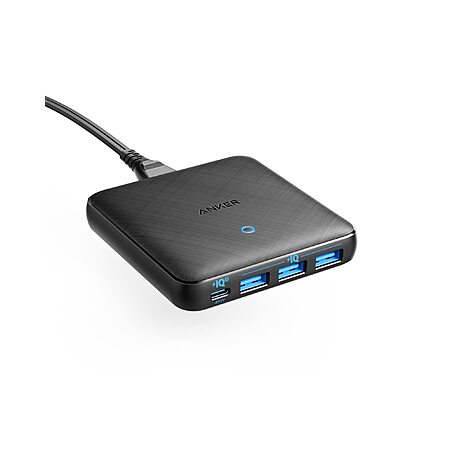
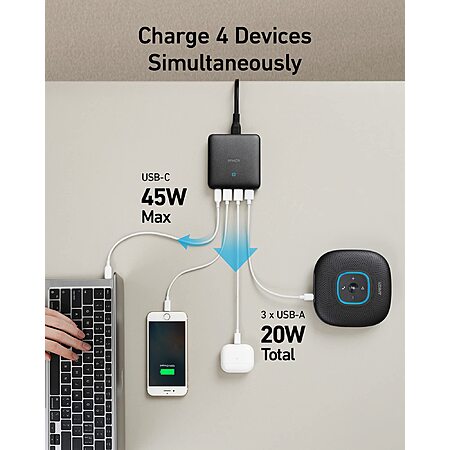
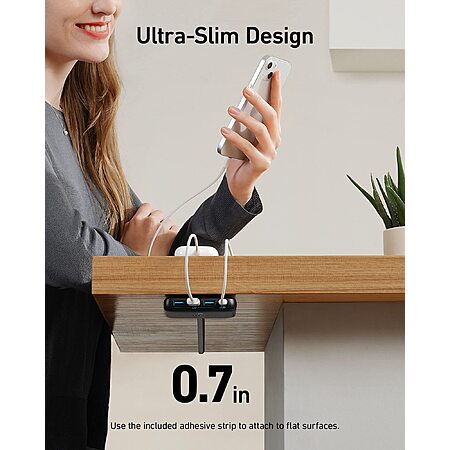
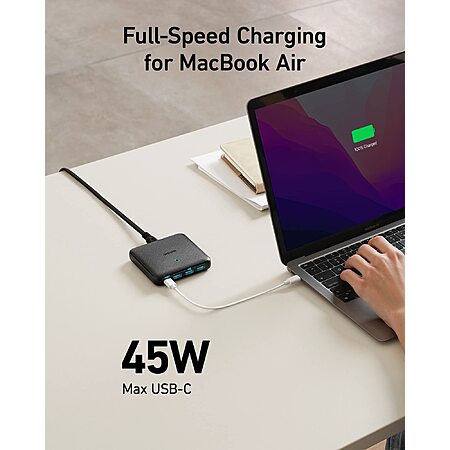
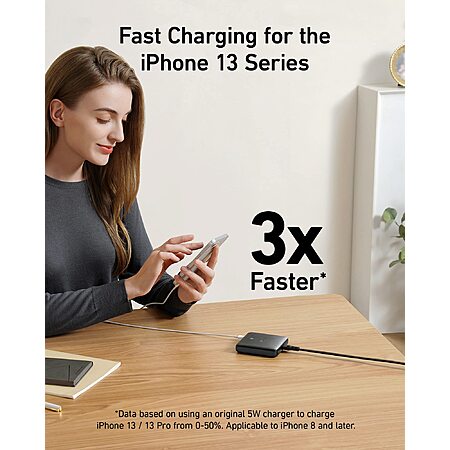
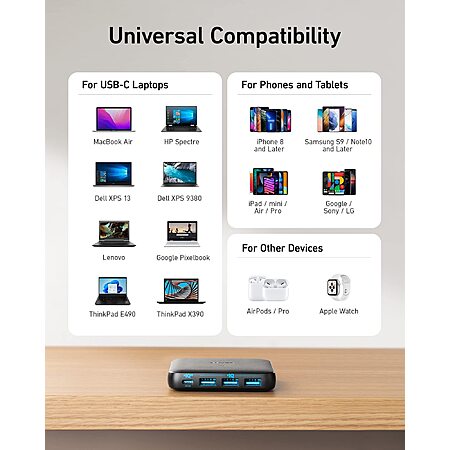
Leave a Comment
Top Comments
32 Comments
Sign up for a Slickdeals account to remove this ad.
Our community has rated this post as helpful. If you agree, why not thank ConsultHawkins
USB-B and mini USB cables are still being sold, despite being infrequently used.
There's also USB A to C adapters, if you wanted to convert all the ports to USB-C for some odd reason.
What isn't "future proof", however, is the charging tech on this. I guarantee you'll want a different charger long before you ever have to worry about USB-A disappearing.
Don't be like the Apple zealots who told everyone to throw away their micro USB cables because "lightning connector is the future".
Sign up for a Slickdeals account to remove this ad.
USB-B and mini USB cables are still being sold, despite being infrequently used.
There's also USB A to C adapters, if you wanted to convert all the ports to USB-C for some odd reason.
What isn't "future proof", however, is the charging tech on this. I guarantee you'll want a different charger long before you ever have to worry about USB-A disappearing.
Don't be like the Apple zealots who told everyone to throw away their micro USB cables because "lightning connector is the future".
Not compatible with Samsung Galaxy S10 is a red flag as is Anker's warning that connecting more than two phones will cause overload.
Most modern USB devices are designed to be charged from a USB Type A port which provides more than 5 volts. Even though the Galaxy S10 has a Type C port and can be charged with C-PD it is still optimized to be charged from Type A multi-voltage port Samsung AFC or QC. This is true for many devices still in use today and why they are supplied with C to A adapter cables.
Unless at least one Type A port is ( edit ) ( at least a multi-volt "QC compatible" port) then the power supply isn't worth more than $5. USB Type A wall adapters adapters in the $3-$10 range have multi-voltage capable "QC compatible" ports.
Anker did at one time address the pro-user market but now it seems to be packing charging circuits which cost them pennies in to pretty boxes with a nice form factor because that's what sells. .
They don't support data, but I can't imagine that being an issue.
Our community has rated this post as helpful. If you agree, why not thank wherestheanykey
Qualcomm's charge controller tries to negotiate the best charge rate with every device, but it's far from perfect and it jacks up the price due to licensing.
The preferred universal charging standard right now is USB-PD, but more specifically, PD 3.0 which supports PPS.
As far as "heating the battery" goes, you cause more wear on the battery just by using your phone (especially with high screen brightness outdoors and in warm climates) than charging ever does.
If you really cared about you battery, you wouldn't want QC or any of these fast charging technologies.
And not because it puts any extra strain on the battery (it doesn't — the batteries are designed to handle the extra current), but because recharging it faster just means you'll put it back to use more often throughout the day.
With the way tech moves, I would say this one of those use cases that most people shouldn't buy now.
Usb-c PD is definitely the way forward. Higher wattage charging and faster transfer speeds.
Usb-A will be dead before you know it.
Qualcomm's charge controller tries to negotiate the best charge rate with every device, but it's far from perfect and it jacks up the price due to licensing.
The preferred universal charging standard right now is USB-PD, but more specifically, PD 3.0 which supports PPS.
As far as "heating the battery" goes, you cause more wear on the battery just by using your phone (especially with high screen brightness outdoors and in warm climates) than charging ever does.
If you really cared about you battery, you wouldn't want QC or any of these fast charging technologies.
And not because it puts any extra strain on the battery (it doesn't — the batteries are designed to handle the extra current), but because recharging it faster just means you'll put it back to use more often throughout the day.
USB-B and mini USB cables are still being sold, despite being infrequently used.
There's also USB A to C adapters, if you wanted to convert all the ports to USB-C for some odd reason.
What isn't "future proof", however, is the charging tech on this. I guarantee you'll want a different charger long before you ever have to worry about USB-A disappearing.
Don't be like the Apple zealots who told everyone to throw away their micro USB cables because "lightning connector is the future".
USB-C cables are the future, they are cheaper and makes no sense at tis moment to throw more money on mainly USB-A power source. At the end of the day it's your money , this is a a decent power supply, I have one in a drawer somewhere, but USB-C is all I buy from now on.
Sign up for a Slickdeals account to remove this ad.
USB-C cables are the future, they are cheaper and makes no sense at tis moment to throw more money on mainly USB-A power source. At the end of the day it's your money , this is a a decent power supply, I have one in a drawer somewhere, but USB-C is all I buy from now on.
Again, even if you're only buying USB-C cables going forward, that doesn't negate the fact that everyone has a ton of perfectly good USB-A cables and that adapters exist.
But to insinuate that USB-A is antiquated (which, yes, you did do in your delusion) is naive.
Leave a Comment